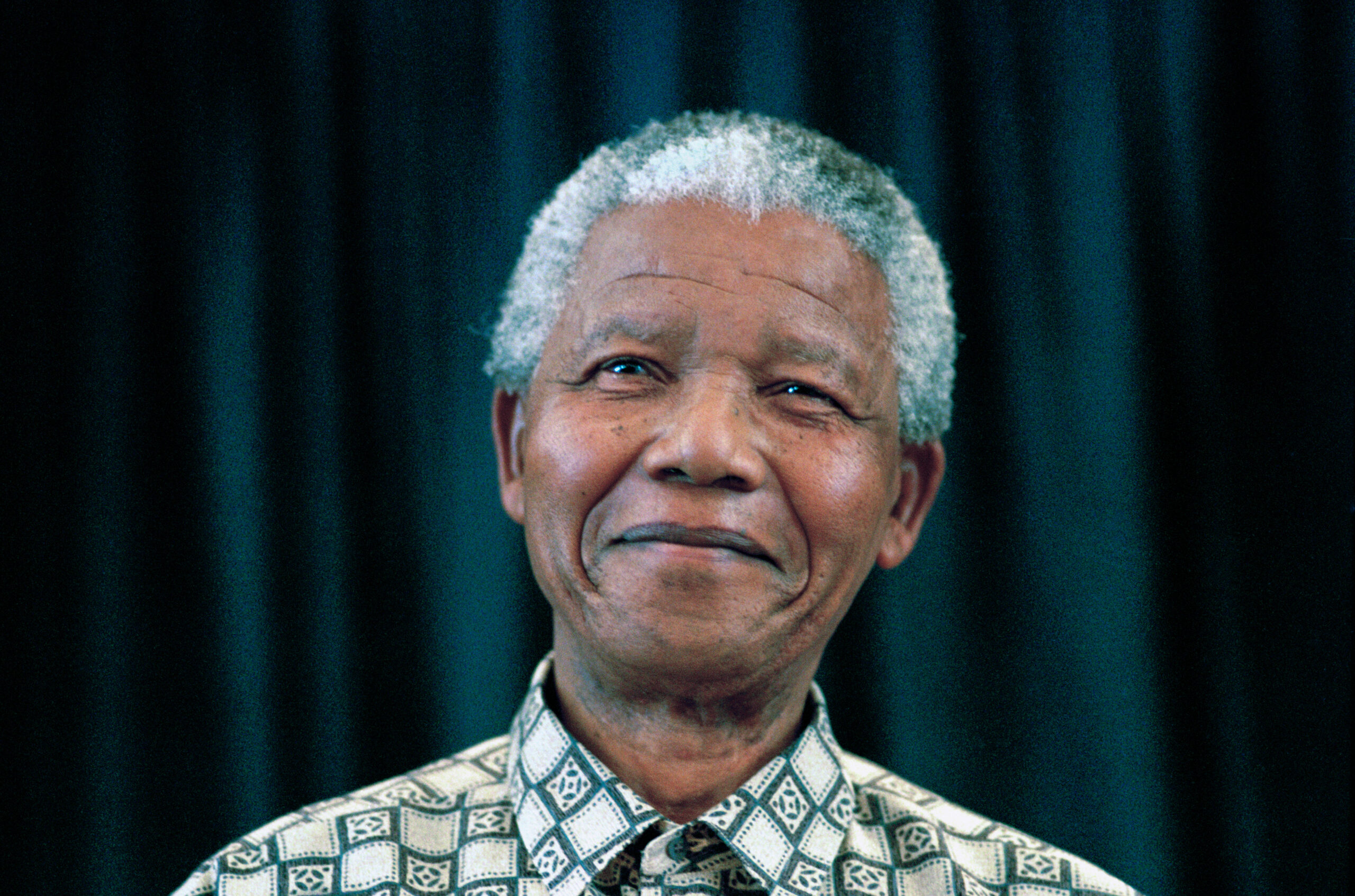Nelson Mandela Day, which celebrates the work and life of the former President of South Africa is July 18th.
The leader was an extremely important figure in the battle against apartheid, and many cite his quotes and speeches as inspiration to this day.
As South Africa struggles with civil unrest and food shortages, the day holds particular significance in 2021.
Read on to find out why today is Nelson Mandela Day, and what it means.
When is Nelson Mandela Day?
Nelson Mandela Day is held annually on the former South African President’s birthday, July 18.
It was introduced by the UN in 2009 to ‘take action, inspire change, and make every day a Mandela Day.
The event asks the public to actively fight poverty and injustice in the spirit of the leader.
The celebration encourages people to consider their social impact, with particular focuses, like sanitation, education, and nutrition, highlighted each year.
In 2021, the Nelson Mandela Foundation is running a campaign to encourage awareness and donations to improve food poverty in South Africa.
Nelson Mandela would have turned a hundred and 103-years old on today The man affectionately known as Madiba, continues to garner global respect. He became a key figure in ensuring South Africa’s political transition from apartheid to democracy. 1/
— NelsonMandela (@NelsonMandela) July 18, 2021
The ‘Each 1 Feed 1’ campaign the impact Covid-19 has had on the nation and aims to encourage active citizenship – one of the aims of Nelson Mandela Day.
Nelson Mandela: Everything you need to know
Where was Mandela born and how did he get into politics?
Mandela was born in the village of Mvezo, Transkei, into the Madiba clan.
Nelson wasn’t Mandela’s birth name – instead of being given the name Rolihlahla by his parents. It was his teacher at his primary school in Qunu who gave him the name Nelson as part of the custom of giving all schoolchildren Christian names.
Nelson Mandela went to university at the University College of Fort Hare but did not complete his degree until 1943 via the University of South Africa as he was thrown out for taking part in a student protest. When Nelson Mandela returned to his village he was told he would be married off so he and his cousin ran away to Johannesburg in 1941.
After taking a job as a security guard, Mandela started studying for an LLB at the University of Witwatersrand but again did not complete the degree until many years later. Mandela himself said the delay was because ‘he was a bad student’.
Mandela entered politics in 1942 joining the African National Congress in 1944 where he helped found the ANC Youth League. As a member of the ANC he led a campaign of civil disobedience in protest at apartheid and other breaches of black civil liberties in South Africa. He was arrested and sentenced to nine months of hard labour but the campaign of civil disobedience continued.
South Africa’s State of Emergency – and the banning of the ANC
After police killed 69 people during a protest in 1960, South Africa declared a State of Emergency and banned the ANC party.
Mandela then organised a national strike in 1961 and in 1962 secretly left South Africa to gain support for his cause around the world in places – including England – and receive military training in Morocco and Ethiopia.
On his return to South Africa he was arrested for leaving without a permit and inciting workers to strike. He later faced additional charges of sabotage, for which he faced the death penalty. During the trial he gave a poignant speech saying he was ready to die for his cause.
I have fought against white domination, and I have fought against black domination. I have cherished the ideal of a democratic and free society in which all persons live together in harmony and with equal opportunities. It is an ideal which I hope to live for and to achieve. But if needs be, it is an ideal for which I am prepared to die
Mandela and seven others were sentenced to life imprisonment and sent to Robben Island. One of the men Denis Goldberg was sent to Pretoria Prison instead because he was white.
Mandela’s time in prison
Mandela’s prison number was 466664 at Robben Island. During Mandela’s time in prison both his mother and eldest son Thembi died and he was not allowed to attend their funerals.
He also completed his law degree from prison in 1989, receiving the certificate in absentia.
Mandela was eventually released from prison after 14 years after being diagnosed with tuberculosis in 1988.
He spent three months in hospital and transferred to a house near Paarl to spend the remaining 14 months of his sentence.
On Sunday February 11, 1990 he was formally released – nine days after the ANC party was released from its ban too.
Mandela becomes South Africa’s first democratic president
In 1991 Mandela engaged in talks to end white minority rule and became the president of the ANC. Mandela and President FW de Klerk won the Nobel Peace Prise in 1993 and in 1994 he was inaugurated as South Africa’s first democratic president.
He promised to step down after one term as president and did so in 1999. He set up a number of foundations, and worked with a range of international figures, after stepping down.
Mandela continued his work for democracy until he died on 5 December 2013 in Johannesburg.
How many times did Mandela marry?
Three. Mandela married his first wife Evelyn Mase and had two sons and two daughters, with one of the girls dying infancy. The couple divorced in 1958.
Mandela married his second wife social worker Winnie Madikizela in 1958, with whom he had two daughters. The couple divorced in 1996.
He married his third and final wife in 1993 – Graca Machel.

